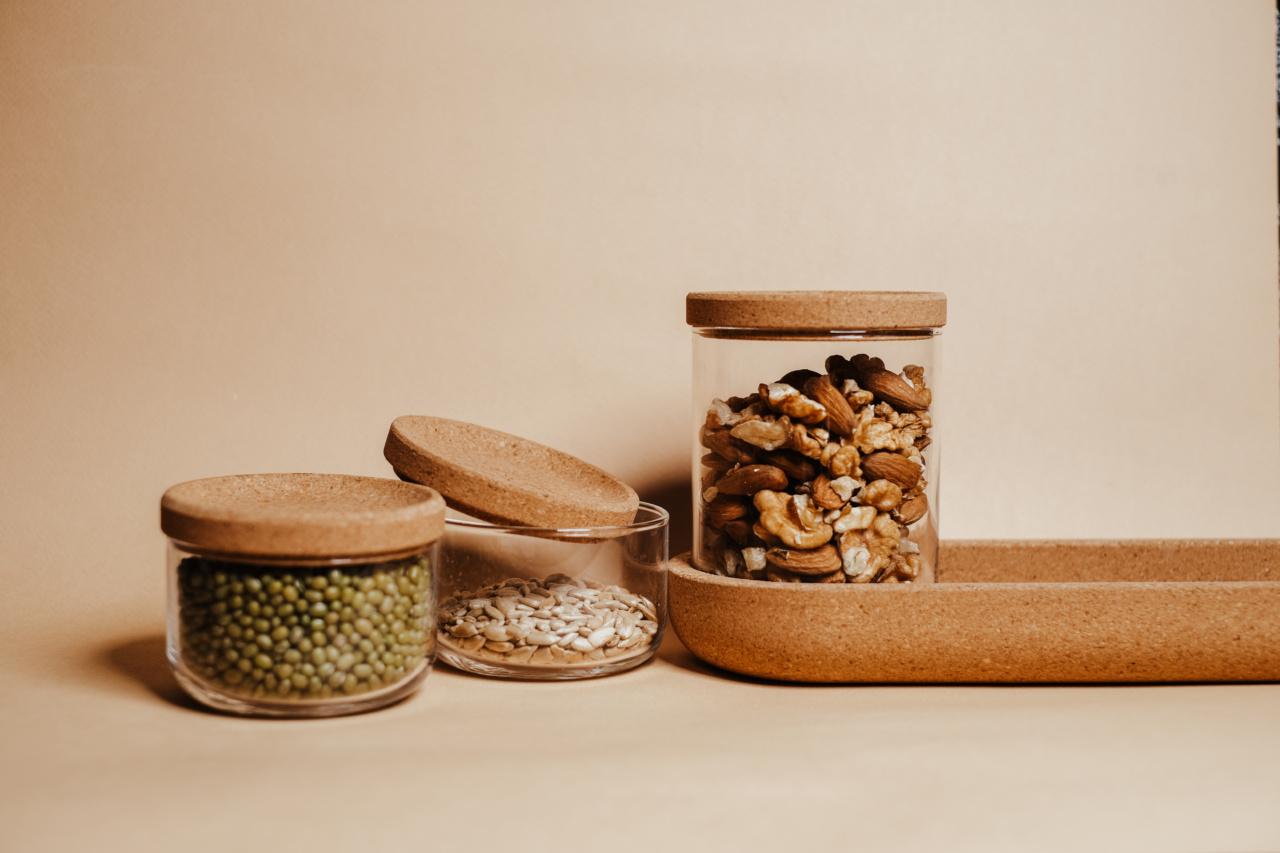Nuts and seeds are a great source of nutrition and are commonly used ingredients in many recipes. However, they are also known for their high oil content, which makes them susceptible to rancidity and spoilage.
Proper storage techniques must be followed to ensure that these healthy ingredients retain their nutritional value and taste, and stay fresh for as long as possible. Here are some tips on how to store nuts and seeds:.
1. Keep Them in an Airtight Container
One of the most important things to remember when storing nuts and seeds is to keep them away from air. When exposed to air, the oils in the nuts and seeds can oxidize, leading to rancidity.
Therefore, it is essential to store them in an airtight container. A glass or metal container with a tight-fitting lid is the best option, but plastic containers with tight-fitting lids can also be used.
Avoid using containers that are not airtight, such as paper or plastic bags, as they can allow air to get in and contribute to spoilage.
2. Store Them in a Cool and Dry Place
Another important factor in the proper storage of nuts and seeds is temperature. To maintain their freshness and prevent spoilage, it is recommended to store them in a cool, dry place.
A pantry or cabinet with a stable temperature is a good choice, as fluctuations in temperature can cause condensation, which can lead to mold and spoilage. Avoid storing them near sources of heat, such as stoves or ovens, as the heat can cause the oils to go rancid.
3. Refrigerate or Freeze Them
For longer storage, nuts and seeds can be refrigerated or frozen. This is particularly useful for those who buy nuts and seeds in bulk quantities.
The lower temperatures of the refrigerator or freezer can help to further slow down the oxidation process and extend the shelf life of the product. Simply transfer the nuts or seeds to an airtight container and place them in the fridge or freezer.
4. Keep Them Away from Light
Lights, particularly sunlight, can also contribute to the spoilage of nuts and seeds. To avoid this, store them in a dark place, away from direct sunlight.
If the container you are using is not opaque, consider wrapping it in a brown paper bag or a cloth to protect the nuts and seeds from light exposure.
5. Roast Them Before Storage
If you have bought raw nuts and seeds, roasting them before storage can also help to extend their shelf life. Roasting can kill any bacteria or fungi that may be present on the surface of the nuts and seeds, which can slow down spoilage.
Roasting can also help to remove any residual moisture, which can also contribute to spoilage. Simply spread the nuts or seeds on a baking sheet and roast them in the oven at 350°F for 10-15 minutes, or until they are lightly browned. Allow them to cool completely before storing them in an airtight container.
6. Keep Them Separated
When storing different types of nuts and seeds, it is recommended to keep them separated. While they may all be stored in an airtight container, mixing them together can cause the flavors to combine and alter their taste.
It can also make it difficult to use a specific type of nut or seed in a recipe, especially if they have already been roasted and seasoned with different flavors.
7. Check for Signs of Spoilage
Even with proper storage techniques, nuts and seeds can still spoil over time. Therefore, it is important to check them regularly for any signs of spoilage. This can include discoloration, off smells, or a rancid taste.
If you notice any of these signs, discard the nuts or seeds immediately to avoid any potential health risks.
Conclusion
Nuts and seeds are healthy and delicious ingredients that should be part of any diet. However, to ensure that they retain their nutritional value and flavor, it is important to follow proper storage techniques.
By keeping them in an airtight container, storing them in a cool and dry place, refrigerating or freezing them when necessary, keeping them away from light, roasting them before storage, keeping them separated, and checking for signs of spoilage, you can enjoy these healthy ingredients for a longer period of time.































